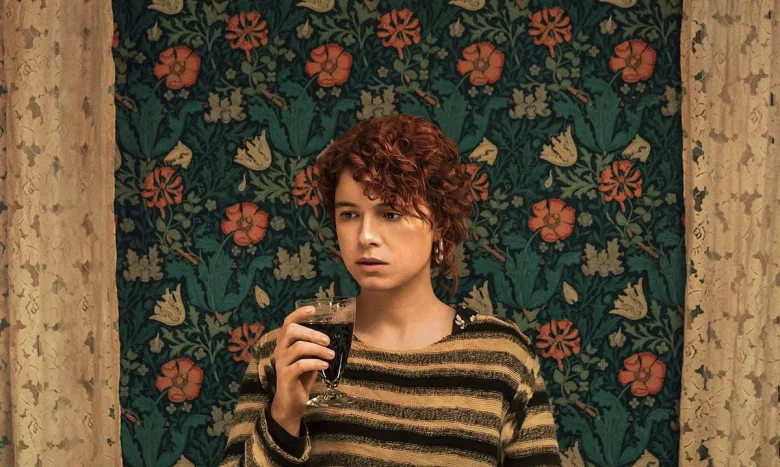Disclaimer: the following review contains spoilers for I'm Thinking of Ending Things.
I’m thinking of analyzing things. Just a few things - in particular - those related to Charlie Kaufman’s long-awaited Netflix film called I'm Thinking of Ending Things. Bizarre and confounding, it is a film that resists reductionist categorization. A tragicomic adaptation of Iain Reid’s novel of the same name, its surrealist mood can be put into perspective by mentioning Kaufman’s other works. Like his previous film Eternal Sunshine of the Spotless Mind, it delves deep into the gloom and doom of being human. Well, what’s it really about?

Simply put, I'm Thinking of Ending Things is about a woman traveling with her boyfriend to meet his parents. But every Kaufman movie is much more than it seems at first glance. The trip to a desolate farmhouse forms the narrative backbone on which Kaufman’s film hinges, a place that fluctuates seamlessly between reality and a dreamlike existence. Most of Kaufman’s films have attempted to explore the human connection, but I'm Thinking of Ending Things is different because it puts a full stop on it. It seeks to deconstruct the myth of human connection and time. A line in the film screams prophetic in this regard: “Other animals live in the present. Humans cannot. So they invented hope.”
In the movie, the infamous black box of causality breaks open. It makes the audience feel intense emotions without even knowing why. Viewers inhabit the mind of Lucy (Jessie Buckley), who’s on a car trip with her boyfriend Jake (Jesse Plemons). As Lucy muses to herself about ending things after dating Jack for seven weeks, she is filled with dread pondering over whether Jake can read her mind, whose knowing stares startle her. Inconsistencies start to materialize as the car drives further ahead into the eye of a snowstorm. She is a student of quantum physics, but that subtly changes to art and later, gerontology. Lucy becomes Louisa and Louisa becomes someone else entirely, nudging the audience to question her very existence.
Strapped into the front seat of Jake’s car and suffocated by the induced claustrophobia of Łukasz Żal’s Academy ratio framing, the conversation between Jake and Lucy is so broken that it seems to be dissonant with Lucy’s monologue. In one instance, Jack mansplains the poetry of Wordsworth, and the next Lucy recites a poem from memory, claiming it to be her own creation. He’s making plans for their future, while she’s internalizing all the ways they won’t get to have one. “I should end things,” she concludes, zoning out.
Premonitions of an imminent panic attack intensify as Lucy arrives at Jake’s family home. Played by David Thewlis and Toni Collette, Jake’s parents exude friendly vibes. Even as they seem to be genuinely interested in knowing how the young couple met, Lucy can sense discomfort in Jake’s demeanor. Things seem to be normal until they don’t, as his parents move across different phases of their life in subsequent scenes, young and lively one instant, old and irritable the next. Theirs is a failed relationship, Lucy realizes, and so is hers.
Unlike many Netflix movies, I’m Thinking of Ending Things is not a film that can be easily understood while checking your phone. Viewers have to give up all notions of what a film ought to be like, and only after giving themselves over to it can they be moved by its incoherence. Ironically, Jake and Lucy spend most of their screen time in a moving car, yet they don’t seem to be getting anywhere. By the end of the movie, the audience feels both grounded and transported to another dimension. We can go for a ride alongside Lucy in I’m Thinking of Ending Things, but we can’t settle comfortably.
The coronavirus pandemic has left most of us feeling as if life is reeling out of control, and we can’t even do anything about it. In these testing times, I'm Thinking of Ending Things may either be the perfect movie to depict our existential angst or the absolute worst thing we can watch while trapped in a real-world horror story (hint: climate change, coronavirus). Kaufman’s movie may be trying to voice the hopelessness in trying to dissect it. Much like the thoughts in Lucy’s head, the memory of I'm Thinking of Ending Things lingers long after it has been forgotten.

